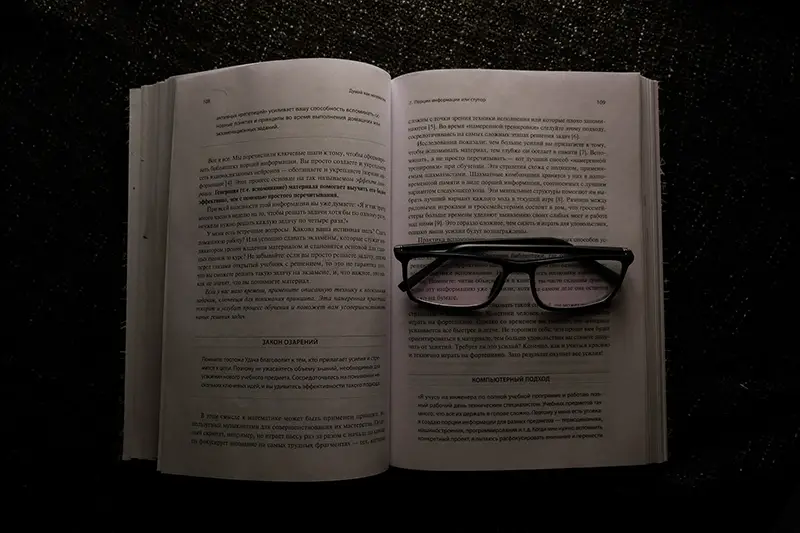Click here to get this post in PDF
When a copy or content is made, it goes through several different editing processes to check for errors, inconsistencies, and areas of improvement. Take note that “copy” is another word for content that refers specifically to pieces that are shorter and are aimed directly at the reader. Magazine headlines, taglines on ads, and landing pages on websites are some examples of copy.
The art of copyediting is considered the most detailed inspection of content in which copy is extensively and meticulously reviewed. Copyeditors look through the copy word for word to see if the text flows naturally and keeps a consistent voice all throughout.
Copyeditors make sure that the copy is high quality. They are responsible for checking the details in sentence structure, tone of voice, proper wording, and flow. The role of the copyeditor is essential to creating a good copy that meets quality standards. Becoming a copyeditor demands attention to detail, and interest in reading and correcting the writing of others.
Copyediting vs Other Editing
Professional copy editing is one of the many editing services that are offered to meet the needs of writers. Be it a manuscript for a book, an article for a publication, or a piece of copy. This content goes through specific kinds of editorial processes to satisfy the standard requirements of the editor before the content is published.
Aside from copy editing, the following are the other major types of editing with a brief description of each.
- Content editing
Content editing looks at the ideas presented in your writing from a broader point of view. Content editors can suggest that more points be added to support your content or expound upon the ideas presented. Content editors provide valuable feedback that can be used to increase the substance of the content.
- Line editing
Line editing is the type that is closely related to copyediting and is sometimes used interchangeably. As the name suggests, line editing focuses on each line of content. Line editors view your writing sentence by sentence to improve or emphasize meaning. Line editors can suggest that writers trim down some sentences and even advise on structural and organizational changes in the overall writing – an aspect that separates line editing from copyediting,
- Structural editing
Structural editing deals with the organization of ideas introduced by the writer. The role of a structural editor is to assess the readability of a writer’s sentence and paragraph structure. If any inconsistencies are apparent in the writer’s structure, it can be detrimental. Structural editing exists to fix the major flaws in writing outside the duty of a copyeditor.
- Mechanical editing
The writing mechanics and use of proper language are the priorities of a mechanical editor. You could make the claim that all types of editing, including professional copy editing, require the proper use of writing technicalities. Though this may be true, keep in mind that people and businesses require specific types of editors for different tasks. Mechanical editors offer their expertise to ensure that no errors are present before publishing a writer’s work.
Becoming a copy editor means having a keen eye for detail, an attribute that other kinds of editors don’t always have. What differentiates professional copy editing from other types of editing is that it focuses on the details word for word. The art of copyediting encompasses a bit of each type of editing. It deals with the micro effects of each word and how it flows through your writing, rather than the macro effect of the overall content. Copyeditors deal with the words and ideas that the writer has already presented, checking and revising those words to be presented to the readers in the best way possible
Attributes of a Good Copyeditor
Copyeditors are vital to publications and are the backbone of any editorial team. Before you pursue becoming a copyeditor and doing professional copy editing, evaluate yourself first to see if you possess the key qualities.
A good copyeditor needs to be very scrupulous, to be attentive to a writer’s words, and avoid any and all mistakes no matter how small.
Becoming a copyeditor means you have the necessary education and experience to do your job effectively and efficiently. You need to know how to write well yourself before you can edit someone else’s work. A requirement to do professional copy editing is knowledge of proper writing – writing formats, sentence structure, the correct use of words, and their definitions. Even though the internet exists to alleviate some of the hassles of research, it is important that you know what good writing is.
Of course, you must also have a passion for the art of copyediting. In whatever work or career you aspire to have, you need to enjoy what you’re doing. Otherwise, the work you do would lose all meaning. Find the passion for copy editing and put effort into your bright future.
Tips to Become a Successful Copyeditor
No matter how old you are or where you are in life right now, there’s always hope of becoming what you want to be.
If you’re interested in the art of copyediting and are looking to do professional copy editing, following these tips would give you a great advantage in becoming a copyeditor.
1. Read More
Knowledge is power, and the more you read, the more knowledge you gain. Reading makes you experience the story, message, and emotions that the writer is trying to convey. A book with better writing always gives a more impactful experience. Learn from the works of good writers and take a deep look into the details of their writing and how the styles of different authors paint images for their readers.
A good suggestion is to read beyond just stories and fiction and look into the way writers use words in ads on television and online. Every word we see in public is written by someone and mostly edited by a professional. Inspiration is all around you so use it on your journey to becoming a copyeditor.
2. Practice Writing
The art of copyediting is deeply connected to the art of writing. Knowing how to write well is a key skill to becoming a copyeditor. Practicing writing can give you the edge as a copyeditor and is a great exercise overall. Recognizing a writer’s flow, avoiding errors in writing, and picking the best words to use are all skills you can enhance when you write well for yourself.
3. Be Open to Criticism
Since becoming a copyeditor essentially means giving your expert criticism to improve others’ writing, you must also be open to accepting criticism from others, especially if you’re starting out. You must learn to be humble and accept that there are always ways to improve yourself.
You may also like: 7 Tips That Will Help You Overcome Writer’s Block
Image source: Unplash.com


